- Home
- Bill James
Blaze Away Page 5
Blaze Away Read online
Page 5
Enzyme did arrive, though.
Barmen and chefs had come in via the staff entrance at the rear of the club, and Ralph left his seat and went to unlock the main doors on to the Terrace ready for the day’s first customers. He was returning to his desk when he heard the door pushed gently open behind him. Ralph turned to offer a landlordly greeting to the early birds. Basil Gordon Loam, late thirties, green cord trousers, brown leather jacket, dark hair worn longish covering the top of his ears, gave Ralph a smile full of heartiness, friendship and purpose. Ember had the odd notion that Gordon Loam’s features looked only temporary, as if he could fit a different combination tomorrow. Ralph wondered if that’s where the nickname came from: in science an enzyme was a substance concerned with causing a reaction – with causing change.
Enzyme said mildly: ‘No need to rush to your chair and special cover, Ralph. I haven’t any bad intent. I come to apologize, to heal wounds, not cause more. It’s true I carry a Smith and Wesson, the shamed Smith and Wesson, admittedly against wise Monty precepts. But it is a gun I bring only to hand over, a symbol of my wish for reconciliation. It is crucial to our present proceedings. I hope you will accept it, Ralph, in the kind of large spiritedness I know you capable of.’ He moved as though to bring out the automatic from its shoulder holster.
‘No! Leave it where it is,’ Ralph yelled. ‘I don’t want any fucking symbolism here.’
Enzyme gave a great, comradely chuckle.
SIX
On the train, Liz Rossol did some careful rereading with her breakfast. An emergency: she needed to take another look around the Darien area. At home yesterday she’d had a bit of a shock. Always, after conducting fieldwork for the Cog firm, Liz paid for issues of the local newspapers, dailies and weeklies, to be forwarded to her London address so that she could update her researches, particularly with anything to do with art; or exceptional police activity in the area; or with road works that might demand diversions for a getaway vehicle; or, of course, with news reports or features about a target property or person, in the present instance the country house Darien and its owner, Lamb, and other occupants. A gossip column, ‘I Spy’, in one of the tabloids, which turned up by post the day before, had troubled Liz. She’d decided she must do some more on-the-spot nosing. She had the piece in front of her now in the dining car as she ate a plump pair of kippers with a pot of middling quality coffee.
SAUCY ART FRACAS AT THE MONTY
I hear of an unusual, even explosive, happening the other night at The Monty, Mr Ralph Ember’s ever-interesting and stimulating social club in Shield Terrace. The starting point for the incident was, apparently, art, not usually a presiding topic at The Monty. Sources tell me that a suspended collage based on the poet William (Tyger, Tyger) Blake’s work The Marriage of Heaven and Hell was severely damaged during a deeply unfortunate and, indeed, perilous few moments at the club, for damage was not confined to the collage.
Enraged by this grossly uncivil, philistine breakdown of decent behaviour, El Cid lookalike Mr Ember summarily banned one member for ever from The Monty, not simply as punishment for tarnishing the club’s precious character, but also to safeguard in advance distinguished pictures he intends displaying at The Monty soon. These, he confidently hopes, will raise the club’s reputation for culture to a level even higher than it occupies at present, which is saying something. Yes, something.
A bottle of Worcestershire sauce – obligatory in the preparation of ‘bloody Mary’ drinks, containing vodka, ice, tomato juice and the sauce – was shattered, badly splashing the surface of a pool table and the T-shirt of a club member. I am told that one long-time regular at the club, Mr Basil Gordon Loam (pictured below at a previous Monty convocation), offered at once to pay for any damage caused, whether to the collage, the pool table or the ‘FASHION IS MY LONG SUIT’ T-shirt. Repairs were immediately put in hand by Mr Ember, and he promised to have the T-shirt laundered. I understand the club will foot the bill for all these services. He declined the offer from Mr Gordon Loam on what were described by other members as ‘grounds of principle’.
The collage is displayed on a hefty metal girder installed between pillars of the bar, either to increase the effectiveness of the air conditioning system (official explanation), or to protect Mr Ember, when he is seated at his accounting desk, from a fusillade by competitors in the general commercial scene (another explanation). It is known that Mr Ember does not care for this alternative version because it makes The Monty sound like an underworld battle ground and hardly the spot to hang great works of art in. Most people will see why Mr Ember resents this harmful reflection on his popular and normally refined, well-ordered, tranquil club. The white beard of a naked male figure on all fours, one of The Marriage of Heaven and Hell’s endearing personnel, suffered the worst rips, and I’m sure Mr Ember was greatly relieved when assured by decor experts that it could be undetectably restored. No proprietor would want his club famous for a shattered ancient beard with literary connections.
Yes, this account had made Liz uneasy and still did. She could put up with the customary flippant, skittish style for such personalized journalism, but she disliked the evasions, the deliberate concealment. That phrase ‘even explosive’, at the start of the piece – what did it mean? Just boisterousness? Noisiness? Or was this a kind of code? If the collage hung on a girder between pillars, how could it have been damaged? The ‘I Spy’ column didn’t say the girder had fallen, which might have brought harm to the collage – and to anyone underneath. Was the smashed Worcestershire sauce bottle and the unhelpful scatter of splashes linked in some fashion with the assault on Tyger, Tyger Blake’s work?
In Liz’s view, the only sequence possible was that some member in the bar, maybe drunk, takes pot shots with a handgun at the collage and the bullets ricochet off the girder, one of them splintering the Worcestershire sauce bottle into shrapnel and causing havoc stains. The ‘I Spy’ columnist might not want to spell this out because gunfire in a club must become a police matter and the journalist could get pulled into their inquiries. Most people would probably work out that the incident involved shooting, but it could be blind-eyed since nobody seemed to have been hurt, despite ‘perilous’ moments.
Liz assumed that the man banned for ever was Basil Gordon Loam (‘pictured below’) though the column didn’t say so, perhaps scared of libelling him. It named Gordon Loam only because he offered to ‘foot the bill’ for putting things right and was turned down by Ember. She thought this gesture by Gordon Loam seemed like someone regretful and appalled at what he’d done in a stupid, jeux d’esprit, mischievous outburst and, immediately afterwards, eager to make amends. The proprietor wouldn’t have it, ‘on grounds of principle’, the principle being that the gun play, flying glass shards and cavorting sauce undermined club dignity, and repentant money could not buy an excuse for this. She did a long gaze at the picture of Basil Gordon Loam.
Was he familiar, half familiar? Had she seen someone very like him around galleries and auction houses, mostly in London but elsewhere in Britain, too – Glasgow? Birmingham? Cardiff? – and possibly on the Continent – Ghent? Antwerp? Dark hair, long over the ears, wide nostrils like drift mines, late thirties. ‘Basil Gordon Loam’ – was that name stored in her subconscious from trade gossip, or even from the fringes of a deal?
The Monty sounded a dump, all the seeming praise obviously sarcastic – ‘refined’, ‘well-ordered’, ‘tranquil’, its already brilliant cultural level maybe due for a lift, ‘which is saying something. Yes, something’. The ‘Yes, something’ to be interpreted as the opposite of what it seemed, just as the ‘convocations’ referred to probably didn’t properly describe the sort of louche shindigs customary in the club. Because of its unclassy nature, the owner, Ralph Ember, might be all the more committed to a campaign of improvement. Gordon Loam – if it was Gordon Loam – had in an unforgivable spasm disrupted that campaign. Ember wouldn’t want his obnoxious cash.
Liz thought she might have hear
d of The Monty while working in the area previously. As far as she could recall, it wasn’t a flattering mention. But the club hadn’t seemed relevant to her researches on Lamb and Darien and so had not been worth investigating. ‘I Spy’ changed that, though. She felt that this almost farcical incident with art as its theme might affect local atmosphere. In its sneering way, the ‘I Spy’ column had spoken about this – ‘art not usually a presiding topic at The Monty’. The ‘I Spy’ readership, including, most probably, the people at Darien, would be alerted to fancy work of some sort affecting pictures, although there was no connection she could yet see between the club and Lamb and Darien other than geographical nearness.
In these new circumstances, the thought of sending Justin to find what works Lamb had and their value made her anxious. It might – might – be possible for Justin to do these inquiries safely, posing as a genuine collector eager to see paintings held at Darien. He would very probably roll up at Jack’s place with a sparkling recommendation from one of Liz’s impeccable, obliging, knowledgeable, arm-twisted friends. But Lamb had been in this game a long time and wasn’t likely to be stupid and/or naive. He might sense what was Justin’s actual role and purpose – reconnaissance for an imminent raid on Lamb’s collection – and dispose of him; or get some hired heavies to dispose of him. Art could be very big money. Of course it could. Would there be firms like Cog if not? Come to that, would there be operatives like Justin and herself if not? Very big money brought very big, life-threatening risks. There was the human frame to think about as well as the other kind, hanging on the wall.
Yet the situation hadn’t really changed, had it, from when the Darien project was first considered? That is: Jack Lamb from time to time had some authentic, high-cost items among the fakes and maybe fakes at his country house, and the house might be broachable. Were her fears special to Justin because of the beautiful way things had developed between them recently? Had her judgement been pushed off kilter by that lovely relationship? This wouldn’t be very professional. What she was going to try to discover now was whether any extra hazards to the Darien project had been produced by that blast-off insult to The Marriage of Heaven and Hell, if her guess at what had gone on was correct.
She’d arranged for a hire car to be waiting for her at the station, and she ought to be able to start her new survey right away. On her first visit she’d bought a street map, and she found Shield Terrace on it now. First thing, she meant to drive out for a look at The Monty. She finished her breakfast, thoroughly clearing the fish skeleton of all flesh, drank the remains of the coffee regardless, and gave her mouth a long, anti-kipper, deodorizing squirt from her breath freshener. Spying had its special hygiene.
SEVEN
Yes, Ralph regarded the Enzyme chuckle in the Monty bar this morning as ‘comradely’ – false comradely, tactical comradely, devious comradely.
‘I love that,’ Enzyme said.
‘What?’ Ralph said.
‘I love the way you slice through things to the core, Ralph,’ Basil Gordon Loam said, voice big, precise, warm, reeking with homage, false homage, tactical homage, devious homage, Smith and Wesson-backed homage.
‘Which things? Which core?’
‘It reminds me of what I’ve read about Winston Churchill during the Second World War. He’d tell his generals and admirals and air marshals to give him: “ON NOT MORE THAN HALF A SHEET OF PAPER (Repeat: ON NOT MORE THAN HALF A SHEET OF PAPER)” their plans for, say, the D-Day invasion of Europe, or the fire bombing of Dresden. The nub. He was interested only in nubs. You strike me as a nubs person yourself, Ralph. I’ve always thought so. There’s me sounding off just now with noisy notions, woolly, inflated words like “symbol”, but you … as I say, you just slice through it to the essential, expose it as the blab it is by a sweetly placed profanity. This is your powerfully demotic, indeed, democratic answer – the way strong, man-o’-the-people words might dismiss flowery, highfalutin’ jabber from someone like me. Classic.’
‘I had to fucking stop you getting your fucking mad fucking fingers on a fucking gun,’ Ralph said. ‘Are those profanities sweetly placed and democratic, too?’
Enzyme drew his hand back from the shoulder holster. He gave a sort of generous, even noble, you-win wince. Ralph felt satisfied. Enzyme had been flattened, like Dresden.
‘I’d like you to go now, Basil,’ Ralph said. He used his proper first name, not Enzyme, to keep distance between them, avoid familiarity. Ember knew that some people called him in secret ‘Panicking Ralph’ or even ‘Panicking Ralphy’, because of foul, false rumours about his behaviour at crisis moments in the past. But nobody, however malicious and slanderous, could possibly have found any trace of panic when the crisis centred on The Monty. Cool, effective, unflinching – that was Ralph then. He could surprise even himself by his powerful staunchness. Ralph thought it had some of that bulldog quality associated with Churchill during World War Two, so, perhaps the taste for nubs was not the only common characteristic they shared. True, Ralph had reacted a bit sharply when Enzyme was going for the Smith and Wesson just now, allegedly to bring it out as a sign of defeat, but that wasn’t panic on Ember’s part, just wisdom, taking into account Enzyme’s previous sick spasm with a gun.
‘I especially recall one of your statements on that collage evening,’ Gordon Loam said. He spoke with awe, as though he’d been granted a unique revelation, possibly even up to full epiphany standard, too massive and incandescent to be defined straight off. It had to be gradually eked out in manageable portions or it might damage the listener, like feeding a starving child too much too soon.
‘Which evening?’
‘Oh, Ralph, but that’s kind of you. So kind.’
‘What’s kind of me?’
‘Typically kind,’ Enzyme said. He touched the quantity of hair over his right ear, shifted some sheaves of it slightly, as though to clear a passage, so he’d hear properly any further fine kindnesses coming his way.
‘Kind how?’ Ralph said.
‘To talk as though that evening wasn’t still prominent and deeply resented in your memory: my absurd, over-exuberant, disrespectful ploy towards the flying collage.’ Gordon Loam did a kind of hitch-hiking gesture, pointing with his left thumb up towards the The Marriage of Heaven and Hell.
‘That was a ploy, was it?’ Ralph said.
‘So glad to see the beardy’s been put back to rights.’
‘Do you call that respectful, then?’
‘What?’
‘“Beardy”. This is someone who brings dignity, stature and intellectual depth to the club. Is “beardy” a proper term for him? Bugger off, Basil. You’ve no right to be here.’
‘What you said then about art,’ Enzyme replied. ‘This gripped me. It was something I could not pursue with you at the time, the circumstances being unconducive – your very reasonable rage. But I filed that reference away, and here I am this morning to discuss it. I could be of help to you in that, Ralph. It would be a privilege.’
‘Help in what?’
‘Art.’
‘You?’
‘Ralph, you said you’d be getting some real art for the club. All right, in that understandably angry spell, you also said you would never let me near it, the suggestion being that I might put a .38 bullet through the work or works, I suppose, following that dire precedent.’ He had what Ralph measured as a twenty-second further chuckle at the sheer preposterousness of this idea. It was as if Enzyme considered himself someone absolutely different now from the shoot-bang-fire jerk who peppered beards. Ralph had often seen this kind of schizo attitude in drunks. They’d ask you to tell them how they’d behaved when sloshed and laugh or groan when they heard, just as they might have if the antics had been someone else’s. But Ember didn’t go for it. Enzyme was Enzyme, and a fucking menace. The double barrelled surname didn’t mean he could be two people: sober Gordon Loam, stinko Gordon Loam.
‘I long to compensate for my foolishness, Ralph. I long to be taken back in
to the club.’ He grew meditative. ‘I think of that gospel chorus about the ninety-and-nine sheep “that safely lay in the shelter of the fold. But one was out on the hills away, far off from the gates of gold”. I see myself as that lost, needy sheep, Ralph.’
‘Which sheep-pen has gates of gold?’
‘My selfhood seems diminished without The Monty,’ Enzyme replied. ‘Your glittering achievement, Ralph, has been to make it central to the contentment and completeness of so many, like the Vatican, or the Long Room at Lords cricket ground. I want to offer my gratitude in practical shape. I lead a life which could fairly be described as très mouvementé. Yes. Très.’
‘Out on the hills away?’
‘I get about, I meet people,’ Enzyme said.
‘Which?’
‘Oh, yes.’
‘Which?’
‘Various.’
‘We all do.’
‘People of relevance.’
‘To what?’
‘Art. Or, to put it another way, Ralph, of relevance to you and your plans for The Monty, those plans focused splendidly and positively on art. Art with a capital A. Art as unfettered, worldwide, visionary.’
‘I’ll look after my own plans.’
‘I’m talking about the kind of people I associate with on well-established, comfortable terms. But you’ll ask in your justifiably sceptical, pragmatic fashion, “What are they like, what is their, as it were, ruling passion, their raison d’être – their reason for being alive?”’
‘No, I won’t. I won’t ask anything about them. They’re nothing to me.’

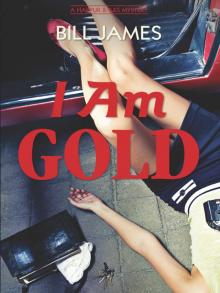 I Am Gold
I Am Gold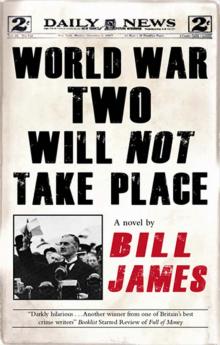 World War Two Will Not Take Place
World War Two Will Not Take Place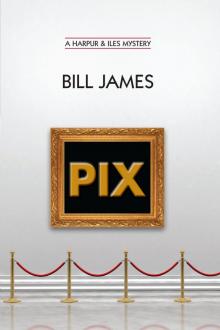 Pix (Volume Book 24) (Harpur & Iles Mysteries)
Pix (Volume Book 24) (Harpur & Iles Mysteries)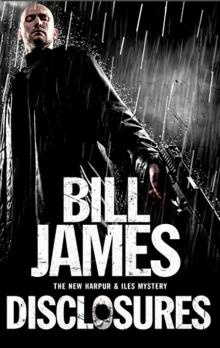 Disclosures
Disclosures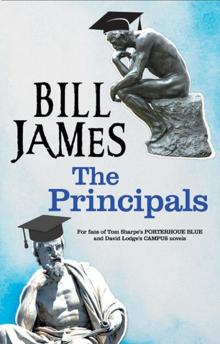 The Principals
The Principals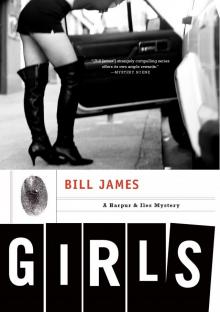 Girls
Girls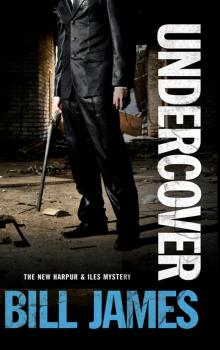 Undercover
Undercover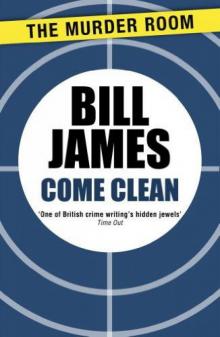 Come Clean (1989)
Come Clean (1989)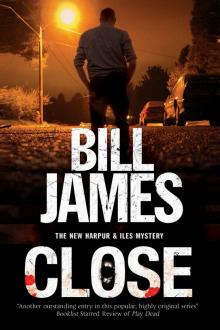 Close
Close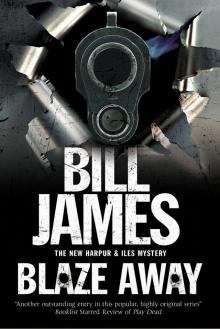 Blaze Away
Blaze Away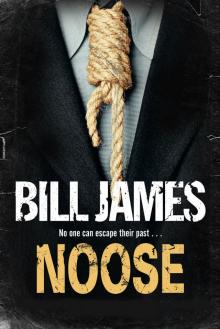 Noose
Noose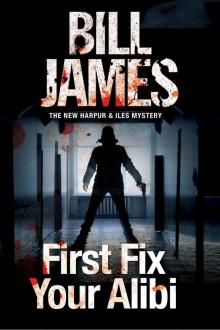 First Fix Your Alibi
First Fix Your Alibi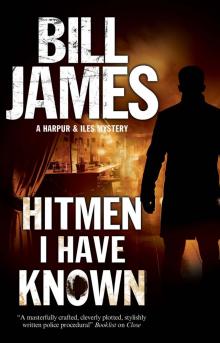 Hitmen I Have Known
Hitmen I Have Known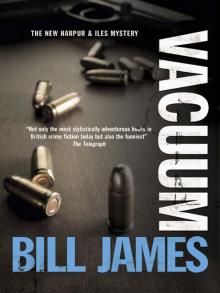 Vacuum
Vacuum Play Dead
Play Dead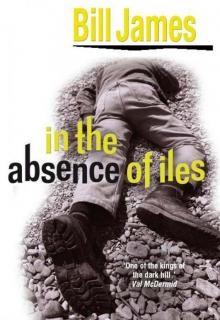 In the Absence of Iles
In the Absence of Iles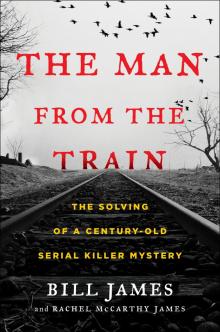 The Man from the Train
The Man from the Train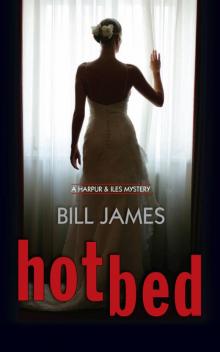 Hotbed
Hotbed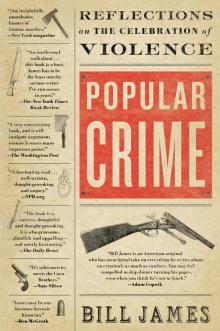 Popular Crime
Popular Crime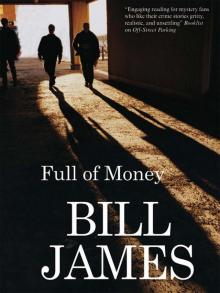 Full of Money
Full of Money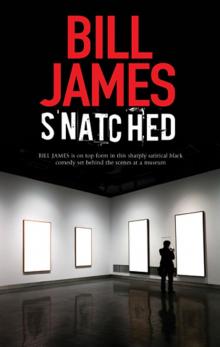 Snatched
Snatched